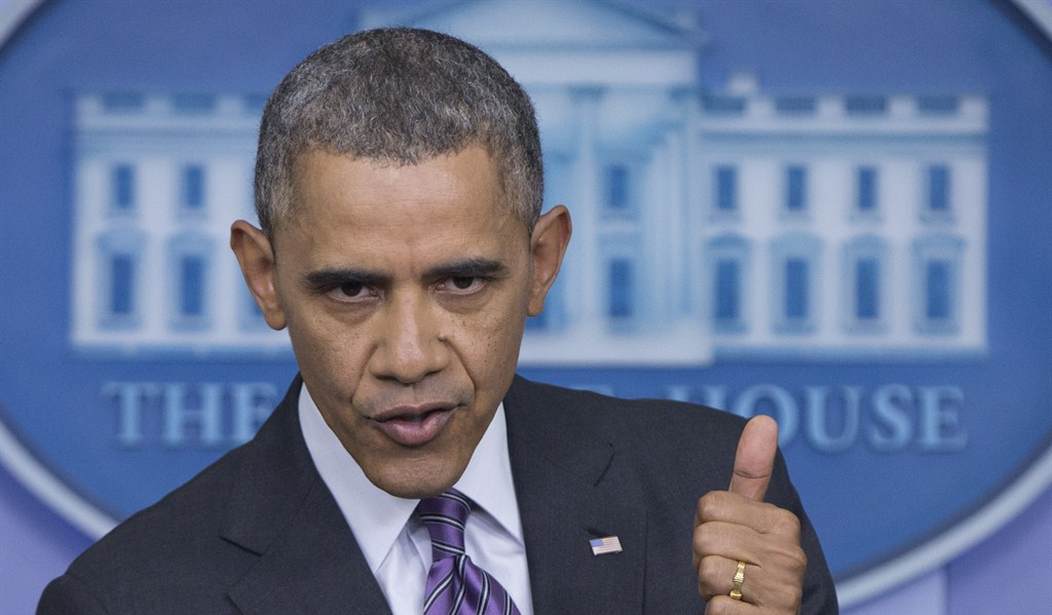To say that California is in better fiscal condition than Illinois is like saying the captain of the Exxon Valdez grades out higher than the guy at the helm of the Titanic. Disasters come in different doses. One study found that California ranks 46th in the health of its state government finances, with Illinois limping in at 48th place.
So imagine the surprise in the Land of Lincoln to learn that California Gov. Jerry Brown plans to create a rainy-day fund for future downturns. He's expecting large budget surpluses, which he wants to use to restore long-term fiscal health rather than squander on short-term demands.
In Illinois, there is no danger that extra cash will be squandered, because there is no extra cash. But state legislators know you can't be too careful. So they are considering approving $100 million for the Barack Obama Presidential Library. Without that promise, Illinois House Speaker Michael Madigan fears, the president might put his monument somewhere else -- Hawaii or New York or maybe Nairobi.
Without that promise, of course, Illinois would also save $100 million. A government that already spends and promises well beyond its means has no business taking on any new obligation it can possibly avoid. But if Illinois lawmakers were susceptible to logic or arithmetic, the state would not be insolvent to begin with.
Chicago Mayor Rahm Emanuel predicts the library "would be a great economic boom and a tourism boom for the city of Chicago." Madigan agrees, adding, "We did it for Abraham Lincoln here in Springfield. We can do it for Barack Obama in Chicago."
One of the big differences between the two is that Lincoln was not a prodigious fundraiser and regrettably was unavailable to solicit donations for his library. Obama, by contrast, shook $1.1 billion out of the trees in 2012, more than any presidential candidate in history. Come January 2016, he will have even more time to ask wealthy admirers to fan him with $100 bills.
Recommended
The economic boom is likely one of those mirages that politicians often sight in the distance. Emanuel's aides can provide no research to support his claim.
A presidential library may make a big difference in West Branch, Iowa, or Abilene, Kansas, which are not overflowing with other seductions. Because Chicago has an array of tourist destinations already in place -- Wrigley Field, the Art Institute, Navy Pier, Millennium Park, the Field Museum and more -- this one probably wouldn't attract a lot of people who wouldn't come otherwise.
The bump, if any, would be short-lived. About a half-million people visited the Bill Clinton library in Little Rock, Arkansas, in the 12 months after it opened in November 2004. By 2008, the flow of traffic had been nearly halved.
As presidential libraries become more numerous, they may hold less appeal than they once did. The George W. Bush library in Dallas had some 60,000 fewer visitors in its first year than Clinton's did in its first year.
Attendance in all of 2013 at the George H.W. Bush site in College Station, Texas, was 130,000. Wrigley Field normally pulls in that many people in a four-game homestand.
"In Chicago, I would expect the largest single population of visitors to be local, so the net economic impact is close to zero," University of Chicago economist Allen Sanderson told me. Sure, every schoolkid in the metropolitan area might make a field trip there. If so, it would be a field trip diverted from some other local institution.
Texas ought to be the model for attracting presidential libraries, since it has more than any other state (one for each Bush and another for Lyndon B. Johnson). How much funding has the state government provided to those institutions? Not a penny.
It's always possible that Obama will choose some other city for his library. But his alternatives are not that great. Honolulu? No one would fly to Hawaii just to visit a presidential library. And once they arrived in that tropical paradise, most tourists would content themselves with other pleasures as they always have.
New York? Good luck finding an affordable building lot -- and good luck standing out amid everything Manhattan has to offer.
Chicago has more to offer the Obama library than the Obama library has to offer Chicago. So the state would be wise to save its money and take its chances. If the price of luring the 44th president is $100 million, let someone else pay it.

























Join the conversation as a VIP Member